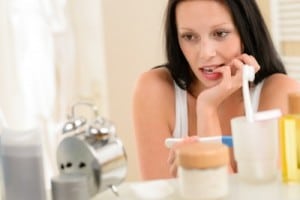
“Accurately timed intercourse on fertile days of the menstrual cycle may reduce the time it takes a couple to get pregnant, helping some to avoid unnecessary ART treatment,” said Kerry Hampton, Monash University’s Department of General Practice.
Unfortunately, it seems that this knowledge is severely lacking in women who are having trouble conceiving naturally.
Hampton and colleagues from Monash University conducted a survey of more than 200 women who were seeking fertility assistance to achieve pregnancy. Of these women, 68 percent believed that they had sex during the days that they were most fertile before seeking professional help. About 80 percent of the women said they tried to improve their knowledge about fertility once they noticed they were having troubles conceiving naturally. Essentially, this means there is a gap between what women want to know and what they actually know.
“It would appear that a gap exists between what women desire in relation to fertility awareness education with the knowledge and understanding of health professionals and what they actually know,” Hampton said.
Researchers on the study believe that intercourse at the right time can actually reduce the need for fertility treatments. If, however, fertility education is not a part of the pre-fertility treatment process, many women may be shelling out money for fertility treatments they don’t need.
“This study found a majority of the women seeking fertility treatment had insufficient knowledge of when to time intercourse to optimize natural conception,” Hampton said. “Fertility education should be a fundamental part of pre-conception care, and the primary care of couples when they first report difficulty conceiving.”
For most women, ovulation begins 14 days after the start of a period. The best time to have intercourse is during ovulation and three days prior.
Related Articles:
- Frozen Embryos Better IVF Success Rate
- Scientists Design Seat Belt for Expectant Moms
- Time-Lapse Incubator may Help Improve Current IVF Techniques






